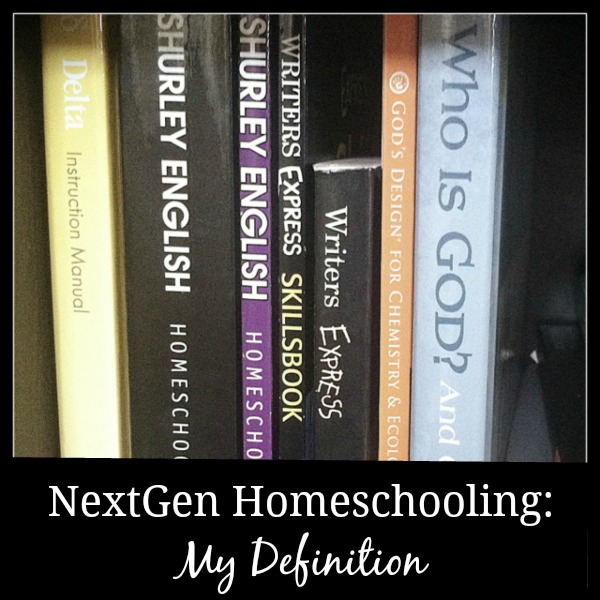“Homeschooling or homeschool (also called home education or home based learning) is the education of children at home, typically by parents but sometimes by tutors, rather than in other formal settings of public or private school. Although prior to the introduction of compulsory school attendance laws, most childhood education occurred within the family or community, homeschooling in the modern sense is an alternative in developed countries to attending private schools or educational institutions operated by civil governments.” — Wikipedia
Thanks for the nice, concise, and politically correct definition, Wikipedia! That about sums it up, right? Well, sort of…
Homeschooling today is perceived as an alternative education option, most commonly chosen by parents who opt out of sending their children to public or even private school for a variety of reasons, such as concern over quality, a rural location, religious beliefs, skyrocketing private education costs — just to name a few. But that clean and tidy definition doesn’t even come close to capturing the growing interest — and continuing controversy — regarding the definition of homeschooling today.
My definition… as a student
My first experience with homeschooling was in high school: It was the mid-80s, and my mother was inspired by the discussion about homeschooling at a biblical foundations conference she was attending, so she took me to a gathering of the homeschooling families in attendance. At first, I really didn’t know what to expect — the idea was just so foreign to me. But I was pleasantly surprised to find that I knew the daughter of one of the families. We’d met at summer camp a few years earlier and had become good friends, even pen pals for a while. And now she was a homeschooled high-schooler — and actually happy about it!
We heard a lot of good things that night, and I was fairly impressed. Families spent time learning together, students received more focused attention, and curriculum was more flexible. Plus escaping the “school schedule” meant more time for traveling around the world, specialized hobbies and skills, etc. Sounds reasonably interesting, I thought. Little did I know that we had just scratched the surface…
At the time, I was just two years away from graduating high school. Even though homeschooling seemed to have lots of benefits, I couldn’t imagine what good it could possibly do for me at this point. I was already a straight-A student, in the AP programs, beloved by my teachers, socially adjusted and deeply engrossed in campus clubs and activities. I’d been on the drill team, softball team, swim team, and a cheerleader — as well as a member of the top academic clubs and student government. I felt pretty accomplished and well on my way to completing a great resumé for college applications and beyond. What more could a homeschooling environment realistically offer me?
But my mom chose to homeschool me anyway. And, as could be expected, I wasn’t happy about the decision. I didn’t really fight it, either — I wanted to be a good daughter, and I figured I’d had a good run in high school and it couldn’t hurt, right?
At first, it wasn’t much different from what I’d expected: My mom picked our curriculum, we did our work at the kitchen table, and I got to do special projects and assignments that combined core skills with my interests. For example, I knew I wanted to be a writer — and possibly a journalist — so I put together my own newspaper from start to finish: Wrote the articles, typed them into the computer, laid out the columns on grid paper, included photos and graphics, took it to the printer, and distributed it to family and friends. Pretty great assignment, and yes, a more valuable learning experience than just writing stories in a journalism class with 30+ other students and maybe getting published in the school paper a few times.
There was another noticeable difference in our school days — bible study and reading, and the spiritual lessons, or “lectures” as we kids would call them among ourselves. These were focused on character, scripture, prayer, and keeping God at the center of our lives. I had expected this difference: After all, a spiritual focus was one of the reasons my mom had chosen homeschooling. But it wasn’t really new to us. My mom had spent many an evening around the dinner table and, more commonly, during a long car drive through L.A. traffic sharing God’s wisdom with us and pointing us toward Him almost every day. Only now, these discussions weren’t reserved for after-school hours.
As a student, I enjoyed the flexibility of homeschooling and the fact that I no longer “wasted time” with the drudgery that results from group teaching in a traditional school setting. It was also nice to escape some of the social pressures of being an involved teenager — I would realize much later how critical that benefit would become. And I appreciated the effort to put God at the center of our home, and felt like my mom had done a pretty good job of sending me off into the collegiate world with a strong faith and foundation.
Speaking of college, I was more than prepared to attend some of the finest universities in California. My high GPA and SAT scores, coupled with the resumé of activities and strong communication skills (another gift from my mother), were still a solid ticket in to the best schools. However, I chose to attend a Christian university — Oral Roberts, of all places — because there was a part of me that knew I wanted to keep God close to everything I would do moving forward, education included. My mom was pleased: Score one for the pro-homeschooling team!
My definition for homeschooling — from a student’s point of view — was well summed up in a persuasive speech I presented in my Oral Communications class just a year later: It was not just an alternative, but a favorable one that could arguably prepare a child more effectively for advanced education, a career, and life than a traditional school setting. And yes, I received an “A” on that speech — I had persuaded my professor.
Funny thing is, I wasn’t quite sure if I had persuaded myself.
My definition… as a parent
Fast forward almost 20 years: I’m a mother to three bright, energetic daughters and married to a wonderfully supportive husband who, in fact, was homeschooled himself. I’m also a work-at-home entrepreneur, leading a successful team of women as part of the Mary Kay sales force. Though my husband and I had discussed homeschooling many, many times over the years due to our shared experience with it, I was content at that point to pass along the responsibility to the local Catholic school. We could manage the tuition payments (barely) and the girls were doing very well (and scoring extremely high, gotta love those standardized tests). Most of all, I needed that “time away” from them on weekdays to focus on my business.
But God doesn’t give up when He has a plan for you. And that nudge in my heart all those years became a “squeeze” — His hand applying some uncomfortable pressure in my life to shape me even further.
The squeeze started out with finances: My youngest daughter was about to start preschool and add several hundred dollars a month to the tuition bill — yikes! At the same time, my business wasn’t producing as much income, and I would realistically need to add more work hours to my day if I was going to change it. But the wheels in my mind just kept on churning for a solution to keep the status quo.
So the “squeeze” got stronger. After renting three different homes in the two years we’d lived in Durango, we were crushed by the news that we’d soon have to move again. As we began to acknowledge God’s hand reaching down to take us in another direction, the subject of homeschooling became part of the discussion. My husband had been waiting patiently for God to bring me around. And now we had the perfect opportunity to make that change, so why not?
Armed with all the same persuasive arguments that won me an “A” in my Oral Com presentation, I prepared for the barrage of questions/concerns/disapproval that I expected to fly my way when spilling the news of our decision to my friends and family. Surprisingly, though, everyone was fairly positive about it. After all, it was 2010: Homeschooling isn’t what it used to be (thanks for the reminder Wikipedia) and, in fact, it’s growing in popularity every year. Many of my friends were even impressed: Applauding my self-sacrifice and dedication to my children.
For a while, I felt some relief — and even excitement — because I’d finally arrived where God was trying to take me all along. And the destination was looking a lot more promising than I had expected. But the excitement faded fast when faced with the daily realities and challenges of implementing our homeschool. I realized very quickly that homeschooling was not just an alternative education method, and it was also not just a more flexible way to provide quality, focused education with a spiritual component. There was so much more that needed to be defined if this was going to be a successful experience.
And it wasn’t just the fact that I was overwhelmed by curriculum choices, educational methods, learning styles, daily schedule variances, etc. — though I was admittedly drowning in options (and indecision). It was becoming clear to me that I needed to redefine my mission for homeschooling: What was God uniquely calling ME to do as a homeschooling parent? I realized the question was not what could I do with our homeschool, but what should I do?
God has been faithful to answer me. I realized that He was calling me to turn my educational expectations completely inside out. It wasn’t enough to just add our faith to our curriculum and our discussions. He was challenging me to center my entire educational plan — from the method to the content and context — around His Word. That our focus on Him would radiate out into everything we do as a family — not just at Bible time, during school hours, or at church. After all, was my goal to raise excellent academic minds, or to develop hearts that are Christ-like and servants equipped for God’s purpose?
“Trust in the LORD with all your heart and lean not on your own understanding; in all your ways acknowledge him, and he will make your paths straight.” — Proverbs 3:5-6
As many times as I’ve read this verse, it took on another level of meaning for me as a homeschooling parent. I realized that homeschooling was so much more than what I understood it to be as my mother’s student back in 1988. It was an opportunity to focus on Him in all our ways (school included) so that He could make our paths straight — for our family right now, and for my children’s individual journeys down the road.
This is how I define homeschooling today. That said, I know every homeschooling parent’s definition will be different. I don’t expect everyone to view homeschooling the way I see it. But that is the beauty of it all: Homeschooling is about the heart of your family — how you uniquely operate. Whatever homeschooling means to you, trust that God has equipped you for your particular journey.
Expect to be “squeezed” along the way.
“Train up a child in the way he should go: and when he is old, he will not depart from it.” — Proverbs 22:6
What is YOUR definition of homeschooling? Why did you decide to homeschool? If you are considering homeschooling, what doubts or fears hold you back? Tell us what you think in the comments below.

